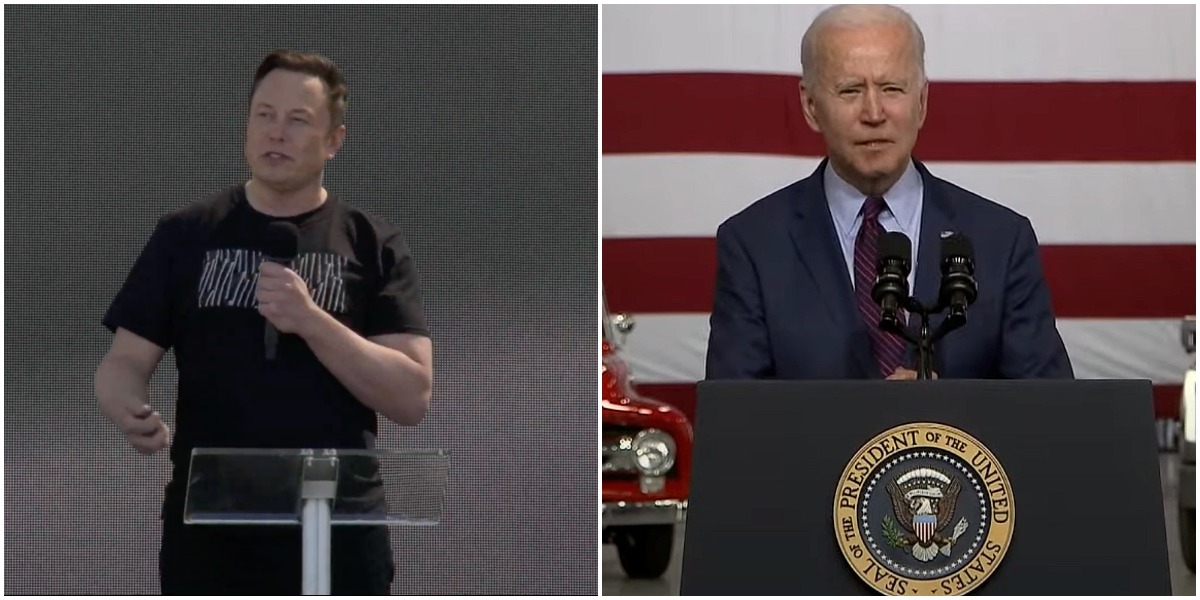More On: Elon Musk
Celebrities and journalists are outraged after losing their blue checkmarks on Twitter
What Are Justifiable Fears About AI?
Elon Musk talks about whether or not he has seen proof of alien life
Elon Musk tells Tucker Carlson that the U.S. government was able to read the direct messages of Twitter users
Workers at Tesla used cameras in customers' cars to spy on them
By removing incentives from the EV market, whatever political influence that a customer may have to consider before buying a car would be gone.
During a recent interview with the Wall Street Journal, Tesla CEO Elon Musk had an idea: eliminate all government incentives for everyone, including electric automobiles, gas, and oil subsidies. While the idea would potentially save $12,500 on an EV's price tag (if it's built in a Union facility in the United States with a U.S.-made battery and it's a Chevrolet Bolt), it may be the best way for consumers to decide which vehicle is right for them, and it may be the best way for political interests to back away from the bigger picture: transitioning away from combustion engine vehicles.
It is no secret that Tesla supporters believe President Joe Biden and other members of his administration have betrayed them. Despite having the largest EV market share in the United States and, without any evidence to imply otherwise, being the reason so many auto makers are opting to go electric, the President has never mentioned Tesla. Other firms, such as Ford, GM, and others, are gaining traction as they try to shift to electric vehicles.
It's great that car companies are continuing to work toward complete electrification in the big picture of the mission, but is it fair that the EV leader, and the real reason these legacy companies must transition or risk being left behind, cannot receive any positive support from the US Presidential Administration?

All of these points bring up perhaps the biggest and most bold statement Musk has made regarding the EV incentives: Get rid of them.
Despite the attractive EV rebate that could put thousands in a consumer’s pocket, especially with the potential for a “refundable” credit based on language in the Build Back Better plan, Musk says that the incentives should not even exist. “Tesla’s made roughly two-thirds of all the electric cars made in the United States. I’m not sure if most people are aware of that. So Tesla’s made roughly twice as many electric vehicles as everyone else has made. Honestly, I would just can this whole bill. Don’t pass it. That’s my recommendation.”
Perhaps this is the appropriate strategy, simply because it removes politics from the EV sector as a whole. There is no reason for politics or inside interests to impair the sector's or any of its participants' clear potential at a time when environmental sustainability must be one of the foci of consumers moving ahead. Furthermore, the clear removal of Tesla, Rivian, and other EV manufacturers by the Biden Administration does not necessarily put certain customer minds in the correct place. Would Biden and others disregard the major contributor to the move to EVs if they actually cared about the automobile industry's transition to EVs? Probably not.
By removing incentives from the EV market, whatever political influence that a customer may have to consider before buying a car would be gone. Instead, let customers to purchase what they want at a price they can afford, when they can afford it. With incentives, the Bolt is expected to sell more units than ever before, especially as it provides the highest refund and is already available for less than $30,000 before incentives. It would be a terrific step to expand the number of electric vehicles on the road, but it would be unfair to other carmakers, particularly those who have focused more on EVs and are dedicated to making the transition.
Musk's plan to eliminate incentives from the system might be one of the finest ever. People will buy an electric vehicle if they desire one. Consumers have never been deterred from purchasing $70,000 pickup trucks, $100,000 Mercedes-Benzes, or a $129,000 Model S Plaid due to a lack of incentives. Many individuals will buy the automobile they desire regardless of what the government offers in the form of a tax credit. One thing is certain: electric vehicle tax incentives have proven to be more of a political benefit than a consumer one.The following is the complete transcript of Musk's interview with the Wall Street Journal:






















